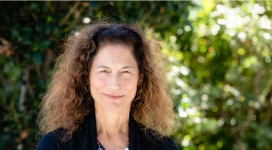HONG KONG (AP) - China's official Catholic church urged its followers to boycott "The Da Vinci Code," and bishops in India demanded the movie be shown with a disclaimer Thursday as viewers across Asia got a first glimpse of the controversial film.
The Chinese Patriotic Catholic Association, which isn't governed by the Vatican, accused the film's makers of "violating religious ethics and morals and insulting the feelings of clergy and followers," the state-run Xinhua News Agency said. The church urged the country's more than 10 million faithful to avoid it.
However, China's officially atheistic communist government hasn't banned the movie. Normally strict censors cleared the film without any cuts.
Asian moviegoers were among the first in the world to watch "The Da Vinci Code" when it officially opened Thursday. The film premiered at the Cannes Film Festival in France on Wednesday night, hours after it played at a Beijing theater.
The film, based on the best-selling Dan Brown novel by the same name, wasn't expected to generate major backlash in Asia, where the major religions are Buddhism, Hinduism and Islam. But many Christians are outraged by the movie's theory that Jesus married Mary Magdalene and had children, and that the Vatican and conservative Catholic group Opus Dei tried to cover it up.
Christian leaders in various Asian countries have gone on the offensive with attempts to censor or ban the film.
In mostly Hindu India, the Catholic Bishops Conference sent a letter Thursday to the country's information and broadcasting minister demanding the movie display a "bold and lingering disclaimer" to state that it's fiction.
The minister, Priya Ranjan Dasmunshi, was deciding whether to allow the movie to be released after watching it with opponents. He earlier put the film on hold after a flood of complaints.
In the Philippine capital of Manila, where Catholics are predominant, the city council banned the film from being shown in movie theaters.
Bernie Oca, 52, who watched the film before the ban, said he wasn't personally offended by it but expressed concerns others may be.
"You can look at this as purely entertainment, which it is. But then when your faith is very strong, it shouldn't bother you," he said, adding that for Catholics not as informed, "it may be a little disturbing."
Elsewhere, an Athens court on Thursday rejected a lawsuit by Greek Orthodox groups demanding the film be banned for containing alleged blasphemy. Some 90,000 tickets have already been sold for the film in Greece.
In Latin America, a traditional Roman Catholic stronghold, critics made their displeasure known but didn't launch a major protest action, apparently fearing it would give more publicity to the film.
Venezuela's bishops' conference announced in a statement issued earlier in the week that it won't urge followers to protest or boycott the movie but condemned it as "an attack on the fundamental beliefs and values of Christianity and the Catholic Church."
Despite the heated debate over the "The Da Vinci Code," one thing is clear: interest in the film is intense.
At the Greater Union cinema in Sydney, Australia, tickets were sold out at all weeknight and weekend showings for the next three weeks.
"We would normally expect to get three weeks out of a movie, but this is one we can play and get a good eight weeks out of," said Chris Nicholson, the movie theater's business manager.
In Hong Kong, early viewers said they could distinguish fact from fiction.
"It felt like a novel," S.L. Poon, a non-Christian, said after walking out of a matinee.





![Saving Gen Z’s Faith: Steve Richardson’s Bold Call to a New Generation of Missionaries [Exclusive Interview]](https://www.gospelherald.com/media/cache/thumbnail/7/21/72196sp_273w_150h_1x_1y.jpg)

